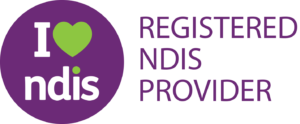What is Concussion?
Concussion is a brain injury caused by a knock to the head or anywhere on the body, where the force is transmitted to the head. It can also be caused by a fall. Concussion involves temporary neurological impairment. The symptoms may evolve over the hours or days following the injury. While all concussions should be assessed by a doctor, most will resolve without the need for specific treatment. Rest, followed by gradual return to activity is the main treatment.
All concussion is serious.
How do I recognize a concussion?
Recognising concussion can be difficult. It is important to know when to suspect it, because appropriate response and management can help prevent further injury or even death. There are several possible symptoms and signs, but they can be subtle and they are not specific only to concussion.
Onlookers should suspect concussion when an injury results in a knock to the head or body that transmits a force to the head. A hard knock is not required—concussion can occur from relatively minor knocks.
Use the Concussion Recognition Tool 5 to help you recognize concussion
What are the most common signs and symptoms?
The signs of concussion vary and may be difficult to detect. For example athletes may:
- appear normal apart from appearing vacant, dazed or stunned
- be disoriented and unable to recall team plays, scores, who the opponent is or be disoriented in terms of place and time
- ask repeatedly about what happened or what the score is; amnesia is common
- have difficulty concentrating and answering specific questions.
Loss of consciousness, seizure or balance difficulties are clear signs that an athlete has sustained a significant injury. Urgent medical support is critical in these circumstances. In some instances, it will be obvious that there has been a significant injury where the athlete loses consciousness, has a seizure or has significant balance difficulties.
Symptoms can be very subtle and may present as nothing more than the athlete reporting that they do not ‘feel right’. Concussed athletes often report these symptoms:
- visual disturbance
- feeling ‘foggy’, lethargic or slow
- having sensitivity to light or noise
- feeling dizzy or nauseous
- headache.
What to do if you suspect a player has concussion?
First-aid principles apply. You can check out our blog on this here. Neck injuries should be suspected if there is any loss of consciousness, neck pain or a mechanism that could lead to spinal injury. Athletes in this type of situation shouldn’t be moved without guidance from appropriately trained individuals.
To assist the treating doctor, it is helpful to note the following details at the time of the injury:
When: what time did the injury take place?
How: how did the injury occur? For example, is the injury from a knock to the head by a cricket bat or by an opponent’s shoulder?
Where: where on the body was hit? For example, the temple, shoulder or back of head.
What: what occurred next? Including symptoms such as loss of consciousness, convulsions, amnesia, vomiting or confusion.
Additional useful information: any further symptoms such as behavioural changes or loss of memory.
If in doubt, sit them out!
If there is any doubt about whether an athlete is concussed, that athlete should not be allowed to return to sport until cleared by a medical practitioner.
The standard in sideline assessment is the Concussion Recognition Tool (CRT). Every sports trainer and/or parent should have easy access to this in the event of a concussive event so they can make the right decision for the player’s welfare.

How is concussion managed?
Any athlete with suspected or confirmed concussion should:
- remain in the company of a responsible adult
- not be allowed to drive
- be advised to avoid alcohol
- check their medications with their doctor.
Specifically, concussed athletes should avoid:
- aspirin
- anti-inflammatories (such as ibuprofen, diclofenac or naproxen),
- sleeping tablets
- sedating pain medications.
If diagnosed with concussion, athletes require immediate physical and mental rest; this allows the brain to recover.
To properly rest, time off school or work may be needed. Mental rest may include refraining from playing computer games, reading and watching television.
Children and adolescents
Children and adolescents aged 18 years or younger take longer to recover so a more conservative approach to concussion management should be taken. Concussive symptoms usually resolve in less than four weeks.
The child should not return to contact or collision activities less than 14 days after all symptoms are cleared.
Please refer to the Concussion Management Flow Chart to effectively deal with any suspected concussive event.
For a complete management plan any athlete that has had a concussive event must see a medical practitioner before returning to any level of activity.
Sport Specific Concussion Guidelines
Different sports leagues may have different protocols set in place. Many leagues will require reporting of concussive events to the governing body and will also require medical clearance prior to return to play. It is best to contact your league and ask them specifically what their protocols are for managing player concussion.
AFL Guidelines
Follow the below links to information created by the AFL regarding protocols to follow regarding a concussive event.
For community clubs
- Community Concussion Guidelines
- Head Injury Assessment Form
- AFL Position Statement on Helmets & Mouthguards
For medical practitioners
- Community Concussion Guidelines
- Sports Concussion Assessment Tool 5 (SCAT5)
- Child Sports Concussion Assessment Tool 5 (SCAT5)
Rugby Australia Guidelines
Rugby Australia has some excellent information on their website on how to manage concussive events. Check it out here. Please download the following helpful guides that can help you manage a player with concussion;
- Rugby Australia Concussion Management procedure (table)
- Rugby Australia Concussion Management Medical Doctor Information
- Concussion Management Flow Chart
Rugby Australia has also developed the following checklists to assists players, managers and coaching staff manage their player’s concussion and return to play;
- Rugby Australia Concussion Management checklist – Player
- Rugby Australia Concussion Management checklist – Club/Team Manager
- Rugby Australia Concussion Management checklist – Competition Manager
There is plenty of reading to be done about concussion. The pre-season period is the perfect time to familiarise yourself with all the information prior to the Winter season starting. The AIS has an excellent website with loads of information on concussion and is a terrific guide. It is definitely worth checking this out, as well as the Sports Medicine Australia website here.
**Key reference used- www.concussioninsport.gov.au.






